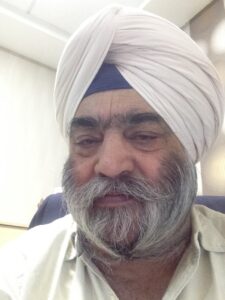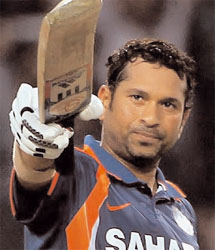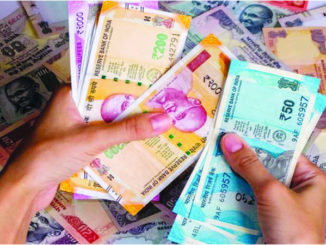

Three days after Prime Minister, Justin Trudeau, met his Indian counterpart, Mr Narendra Modi, on the sidelines of the ASEAN Summit in Vientiane, Laos, both Canada and India expelled six of each other’s diplomats in one of the most severe actions yet in an escalating dispute over the June 2023 assassination of a Sikh activist, Hardeep Singh Nijjar, in Surrey in British Columbia province of Canada.
The virtual snapping of diplomatic relations has sent shock waves among members of the Indian Diaspora in Canada.
Earlier, India outrightly rejected the latest communique from the Canadian Government in which six members of the Indian diplomatic corps, including High Commissioner, SK Verma, were named as “people of interest” linking them to the killing of Sikh activist Hardeep Singh Nijjer.
India defended its diplomats holding that High Commissioner was a very senior member of the country’s foreign service and the charges levelled against members of its mission were unacceptable and slanderous.
In a counter-action, the Indian foreign ministry said it was expelling Canada’s acting high commissioner, deputy high commissioner and four other diplomats, adding that they were told to leave India by the end of Saturday.
The Indian ministry also rejected Canada’s diplomatic communication.
It is not the first time diplomatic relations have been stained to a level that even consular services get curtailed. Last year, both India and Canada drastically cut the strength of their respective diplomatic corps.
In 1986, Canada had not only withdrawn its High Commissioner to India but also imposed severe sanctions after India went ahead with a nuclear explosion in Pokhran.
“I know the events of the past year and today’s revelations have shaken many Canadians, particularly those in Indo-Canadian and Sikh communities. Many of you are angry, upset, and frightened. I get that. This shouldn’t happen. Canada and India have a long and storied history rooted in strong people-to-people ties and business investments, but we cannot abide by what we are seeing right now. Canada fully respects the sovereignty and territorial integrity of India, and we expect India to do the same for us,”. Justin Trudeau said in a statement.
Talking to the media, the Canadian Prime Minister said: “The Commissioner of the RCMP, Mike Duheme, has stated that the RCMP has clear and compelling evidence that agents of the Government of India have engaged in, and continue to engage in, activities that pose a significant threat to public safety. This includes clandestine information-gathering techniques, coercive behavior targeting South Asian Canadians, and involvement in over a dozen threatening and violent acts, including murder. This is unacceptable.
“While attempts have been made by the RCMP and national security officials to work with the Government of India and Indian law enforcement counterparts on this matter, they have been repeatedly which concluded six agents of the Government of India are persons of interest in criminal activities. And despite repeated requests to the Government of India, they have decided not to cooperate. Given that the Government of India still refuses to co-operate, my colleague, the Minister of Foreign Affairs, Melanie Joly, had only one choice.
“Today, she issued a deportation notice for these six individuals. They must leave Canada. They will no longer be able to act as diplomats in Canada, nor to re-enter Canada, for whatever reason. Let me be clear: the evidence brought to light by the RCMP cannot be ignored. It leads to one conclusion: it is necessary to disrupt the criminal activities that continue to pose a threat to public safety in Canada. That is why we acted. Because we will always – first and foremost – stand for the right of Canadians to feel safe and secure in their own country.
“We will never tolerate the involvement of a foreign government in threatening and killing Canadian citizens on Canadian soil – a deeply unacceptable violation of Canada’s sovereignty and of international law,” Justin Trudeau said.
Canada’s foreign minister, Melanie Joly, said the Royal Canadian Mounted Police had gathered “ample, clear and concrete evidence which identified six individuals as persons of interest in the Nijjar case.”
She said India was asked to waive diplomatic and consular immunity and cooperate in the investigation but refused to cooperate.
“Regrettably, as India did not agree and given the ongoing public safety concerns for Canadians, Canada served notices of expulsion to these individuals,” she said while urging the Indian government to support the ongoing investigation in the interest of “both our countries to get to the bottom of this.”
RCMP Commissioner Mike Duheme claimed that investigators have evidence tying Indian government agents to other homicides and violent acts in Canada. He, however, declined to provide specifics, but said there have been well over a dozen credible and imminent threats that have resulted in police warning members of the South Asian community, notably the pro-Khalistan, or Sikh independence, movement. He said attempts to have discussions with Indian law enforcement were unsuccessful.
“The team has learned a significant amount of information about the breadth and depth of criminal activity orchestrated by agents of the government of India, and consequential threats to the safety and security of Canadians and individuals living in Canada,” Duheme said.
India has rejected the accusation as absurd.
Though Indo-Canadian relations have always remained tipsy and turvy, they got a turn for worse in June last year when Hardeep Singh Nijjer, 45, was fatally shot after he left the Sikh temple in Surrey, British Columbia. An Indian-born citizen of Canada, he owned a plumbing business and was a leader of the movement to create an independent Sikh homeland. India had declared him a terrorist in 2020 and his name was figured in the list of individuals who were wanted to be extradited to India.
Four Indian nationals living in Canada were charged with Nijjar’s murder. The bone of contention between India and Canada over the years has been the activities of pro-Khalistan elements on Canadian soil. While Canada had been dismissing these allegations on the plea that it does not curtail the right to freedom of expression, the Government of India had been complaining that an anti-India and secessionist movement was being supported by the Canadian government by its inaction in the matter.
The Indian foreign ministry said Monday that “India reserves the right to take further steps in response to the Trudeau government’s support for extremism, violence and separatism against India.”
The ministry also summoned Canada’s top diplomat in New Delhi and told him that “the baseless targeting” of the Indian high commissioner and other diplomats and officials in Canada “was completely unacceptable.”
(Prabhjot Singh, is a Toronto-based award-winning independent journalist, He was celebrated by AIPS, the international body of sports journalists, for covering ten Olympics at its centennial celebrations held at UNESCO Centre in Paris during the 2024 Olympic Games. Besides, he has written extensively about business and the financial markets, the health industry, the public and private sectors, and aviation. He has worked as a political reporter besides covering Sikh and Punjab politics. He is particularly interested in Indian Diaspora and Sikh Diaspora in particular. His work has also appeared in various international and national newspapers, magazines and journals)





Be the first to comment